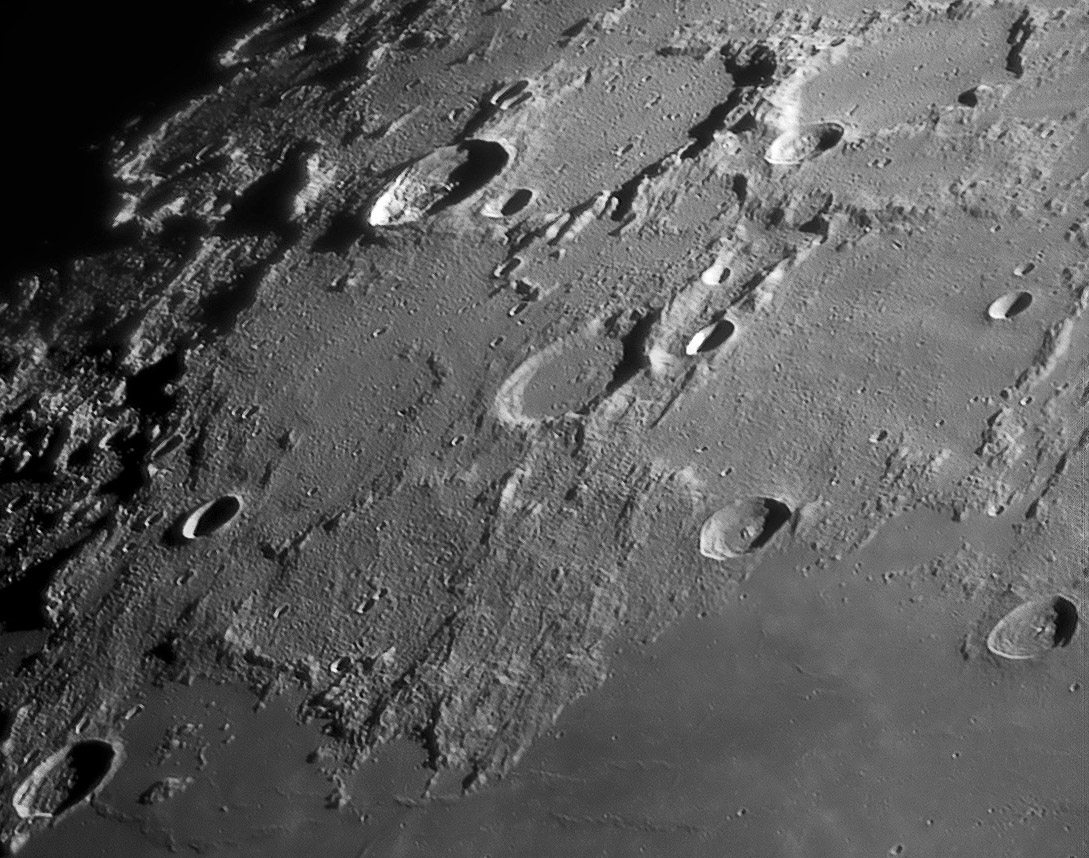September 16, 2008
Mountains From the Sky

image by Paolo Lazzarotti, Mt Giogo, Massa, Italy
The Imbrium impact basin is surrounded by mare lavas on almost all sides. The backside of the Apennines is embayed with shallow patches of mare (Aestuum, Vaporum, Medii and all the little lacus near the Haemus Mountains). To the west, the basin rim is missing and Oceanus Procellarum merges with Mare Imbrium, while the immediate area north of the basin is covered by Mare Frigoris. Imbrium seems to be surrounded by a ring of lowland, which was flooded by once-fluid mare lavas. A major consequence is that the near-basin ejecta is largely covered. Perhaps the largest area of undisturbed Imbrium ejecta is north of Frigoris in a broad region covered with pebble-like bumps. Except that each of these pebbles is a few kilometers across, and when they fell out of the sky it was more of an avalanche than a hail storm. Paolo's wonderful image documents the decline in pebble size and occurrence from near Frigoris to the north around the two large and nearly ruined craters Goldschmidt and Barrow. The center-bottom area contains a more convoluted texture, probably composed of ejecta that both fell from the sky and some that flowed across the surface.
Chuck Wood
Technical Details
May 14, 2008, 21:40 UT. Gladius CF-315 Lazzarotti Opt. Scope + LVI-1392 PRO Experimental camera + Edmund Optics R filter; 90/2000 frames.
Related Links
Rükl plate 4
Paolo's website
COMMENTS?
Register, Log in, and join in the comments.



